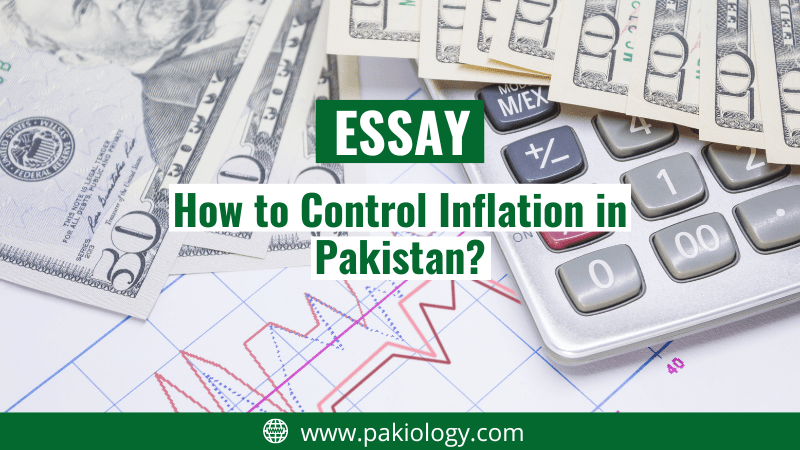Inflation is a persistent rise in the general price level of goods and services in an economy over a period of time. It has a profound impact on the purchasing power of individuals and affects the overall economy of a country. In Pakistan, inflation has been a persistent problem, and all segments of society have felt its effects. The inflation rate in Pakistan has reached double-digit levels, causing severe economic difficulties for the average person. In this article, we will discuss the causes of inflation in Pakistan and offer practical solutions to control inflation and stabilize the economy.
Page Contents
Understanding the Roots of Inflation in Pakistan
Inflation in Pakistan is a complex issue that has several root causes. Some of the major causes of inflation in Pakistan include:
- Overpopulation and the demand-supply gap
- Shortage of electricity and gas
- Political instability and weak governance
- Currency devaluation and high inflation expectations
- Trade deficit and external shocks
Mitigating the Effects of Inflation through Monetary Policy
Monetary policy is the primary tool used by the central bank to control inflation in Pakistan. The State Bank of Pakistan (SBP) can use several monetary policy tools to reduce inflation, including:
- Reducing the money supply
- Regulating credit and lending
- Strengthening the exchange rate
Tackling Inflation through Fiscal Policy
Fiscal policy refers to the government’s approach to managing its revenue and expenditure. To control inflation in Pakistan, the government can implement several fiscal policy measures, including:
Reducing government spending
Increasing taxes and duties
Implementing price controls
Encouraging investment and economic growth
Enhancing Agricultural Productivity to Control Inflation
Agriculture is a crucial sector in Pakistan, and its growth and productivity are essential for controlling inflation. The government can implement several measures to increase agricultural productivity, including:
- Providing subsidies and incentives to farmers
- Improving irrigation systems and water management
- Encouraging the use of modern technologies and techniques
- Improving market access for farmers
Empowering the Private Sector to Foster Economic Growth
The private sector is the driving force behind economic growth and development. To control inflation in Pakistan, the government can implement several measures to empower the private sector, including:
- Encouraging entrepreneurship and innovation
- Improving the business environment and reducing red tape
- Encouraging foreign investment and trade
- Providing access to finance and support services
FAQs:
How does inflation affect the economy of Pakistan?
Inflation reduces the purchasing power of individuals, leading to a decline in consumer demand and economic growth. It also contributes to rising costs of production, reducing the competitiveness of domestic goods and services in the international market.
What is the role of monetary policy in controlling inflation in Pakistan?
Monetary policy is the primary tool used by the central bank to control inflation in Pakistan. The State Bank of Pakistan can use various monetary policy tools, including increasing interest rates, reducing the money supply, and regulating credit and lending, to control inflation.
What are some of the fiscal policy measures that can be used to control inflation in Pakistan?
To control inflation in Pakistan, the government can implement several fiscal policy measures, including reducing government spending, increasing taxes and duties, implementing price controls, and encouraging investment and economic growth.
How can agriculture play a role in controlling inflation in Pakistan?
Agriculture is a crucial sector in Pakistan and its growth and productivity are essential for controlling inflation. The government can implement several measures, such as providing subsidies and incentives to farmers, improving irrigation systems, and encouraging the use of modern technologies, to increase agricultural productivity and control inflation.
Conclusion:
Inflation is a persistent problem in Pakistan, affecting the purchasing power of individuals and the overall economy. The root causes of inflation in Pakistan are complex. Still, they can be addressed through a combination of monetary and fiscal policy measures, as well as enhancing agricultural productivity and empowering the private sector. By implementing these measures, the government can take steps to control inflation, stabilize the economy, and improve the standard of living for all citizens. It’s crucial for policymakers to work together to tackle the inflation epidemic and ensure a bright future for the people of Pakistan.
Find more Essays on the following Topics


0 Comments